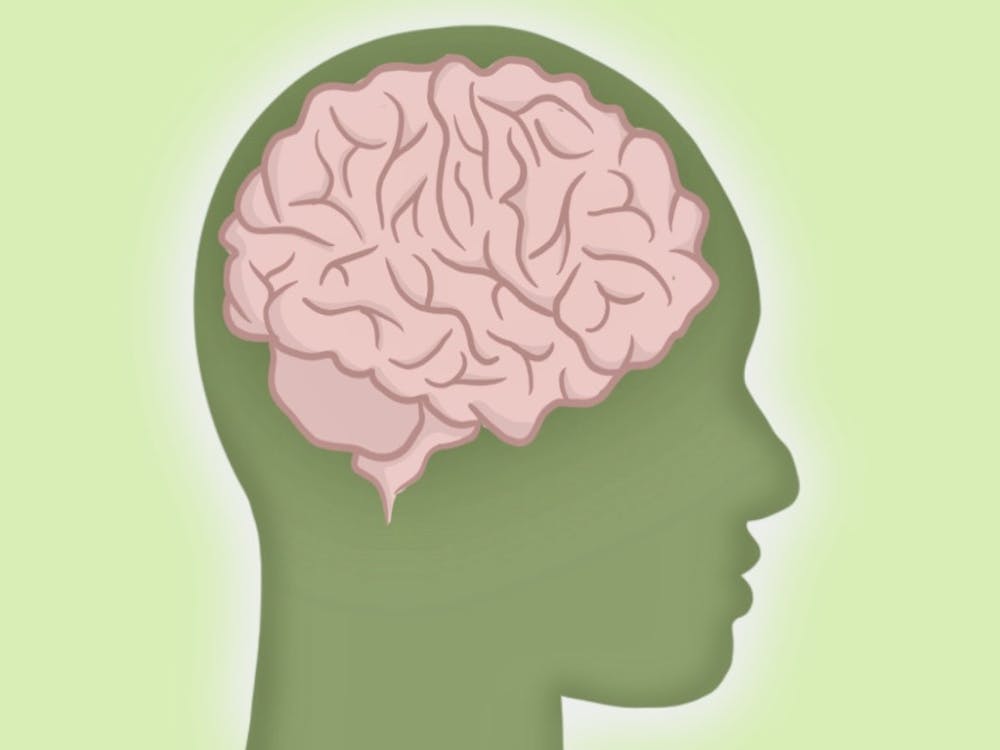For students coping with some form of depression, a UF study found the solution may lie in their spit.
A study from UF researchers, published Aug. 22 in Scientific Reports, found the saliva of some college students with suicidal thoughts lacked bacteria that promote brain health. If the research is further tested and proven true, the medical treatments for those with depression could drastically expand.
It’s the first time bacteria commonly found in saliva has ever been used in connection to depression, said Eric Triplett, College of Microbiology and Cell Science chair; however, some argue more research is needed.
The research could translate into creating a kind of probiotic gum or mouthwash that could help people who are having suicidal thoughts, Triplett said.
“That's kind of the ultimate goal here,” Triplett said. “If we can do it.”
Triplett and Angelica Ahrens, a postdoctoral assistant at the College of Microbiology and Cell Science, said they call it the great Florida spitting contest, or GFSC for short.
The study took saliva samples from 489 College of Microbiology and Cell Science students. The project originated from a desire to let the college’s students try studying themselves, Triplett said.
Researchers found low levels of the bacteria Alloprevotella rava in the students who reported suicidal thoughts within the past two weeks. This particular bacteria helps the brain reach a state called homeostasis, where it balances out its use of energy.
They also found some of the depressed students had a genetic variation that might affect how much Alloprevotella rava their mouths can produce, he said.
This new discovery could enable research on how probiotics could improve someone’s mental health, Ahrens said.
“[It’s] something I’m really keen to study in the coming months,” Ahrens said.
This study will be the first of many, Ahrens said.
A study from the University of Michigan said up to 47% of 32,754 college students showed signs of depression and anxiety. This means a little less than half of the student population across the country could be suffering from mental illness.
Triplett said the study didn’t start out with an attempt to help depressed students.
Originally, Triplett said, the focus of the study was on how genetics affect what spit is made out of. To figure that out, they had to control for variables called confounders — factors other than genetics that could affect saliva — like periodontal disease, which is a type of gum disease.
To control for periodontal disease on top of everything else, the students were given a survey to assess their mental health, called Patient Health Questionnaire 9. The survey screens for depression and scores participants from zero to 27, with 20 to 27 being classified as severely depressed.
That’s when Ahrens and Triplett said they started noticing a trend in the types of bacteria found — and not found — in the severely depressed students’ saliva.
All severely depressed students, Ahrens said, ranked the question “Have you had thoughts that you would be better off dead?” as two or above, with the highest possible score being three. These were also the students who showed a lack of Alloprevotella rava.
However, Dr. Andres Pumariega, UF Health child psychiatrist, said he wasn’t sold on the correlation. The survey it used was not in depth enough to connect thoughts of suicide with a lack of bacteria, he said.
Patient Health Questionnaire 9 is often used to establish a baseline of whether someone should begin seeking help, he said. Pumariega also said the survey is a surface level prediction of depression.
Assuming a probiotic could help with severe depression is a step too far, Pumariega said. The relationship between bacteria and depression is something that still needs to be studied.
“If things are correlated, it doesn’t mean that one caused the other,” he said. “It’s a bit dangerous to think just prescribe a probiotic and that’ll take care of it.”
An 18-year-old UF biology freshman, who requested anonymity because of the stigma around mental health, said she agrees with Pumariega.
She takes Prozac, a selective serotonin reuptake inhibitor, for her depression. She made a suicide attempt in seventh grade, she said, and she still deals with a variety of other diagnosed mental illnesses: obsessive-compulsive disorder, anxiety, anorexia and attention deficit/hyperactivity disorder.
It took four years to find the right dose and type of medication for her, she said. She relies on her medication now, and she said she hasn’t been off it in a year.
“It’s not safe for me to go off my medication,” she said. “In terms of my body withdrawing as well as how I will act and feel.”
She’s wary of the idea that a probiotic could help her, she said. She would not take it without extensive research if she was offered it.
She doesn’t see a future where probiotics could replace antidepressants and other medications that involve hormones.
“My brain doesn’t have the proper chemical balances,” she said. “Is the bacteria going to fix my chemical balance? Or is it just going to make me not want to kill myself?”
But Triplett said this is just the beginning. He has hopes for the study to open the door to a new field of research that could help people, he said.
Ahrens and Triplett both said they intend on involving experts in other departments, including psychiatry and psychology, in upcoming research efforts. Triplett also said he hopes other universities will express interest in teaming up with them as well.
“If we keep at it, get some more funding and encourage others to work with us…I think we got a shot,” Triplett said. “I think we should stop thinking that this problem’s too big for us.”
Contact Siena at sduncan@alligator.org. Follow her on Twitter @SienaDuncan.

Siena Duncan is the Fall 2024 Editor-in-Chief of the Alligator. She's interned for the Salt Lake Tribune, the Tampa Bay Times and POLITICO. In her spare time, she loves to take walks to see the cows by her apartment and add more to her sketchbook.






